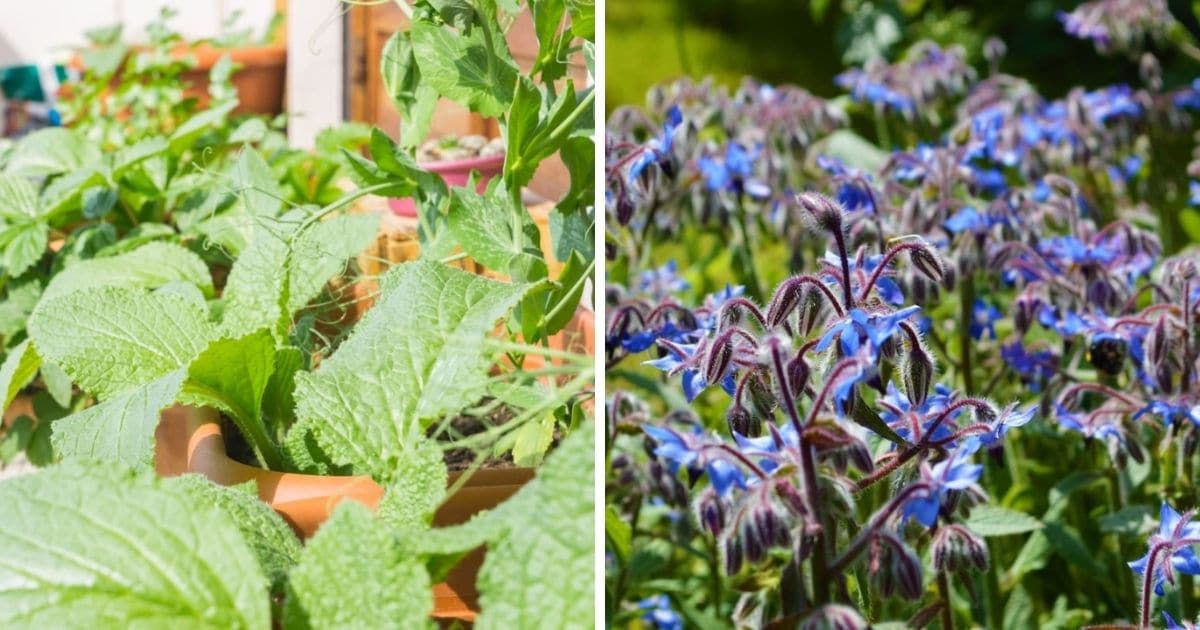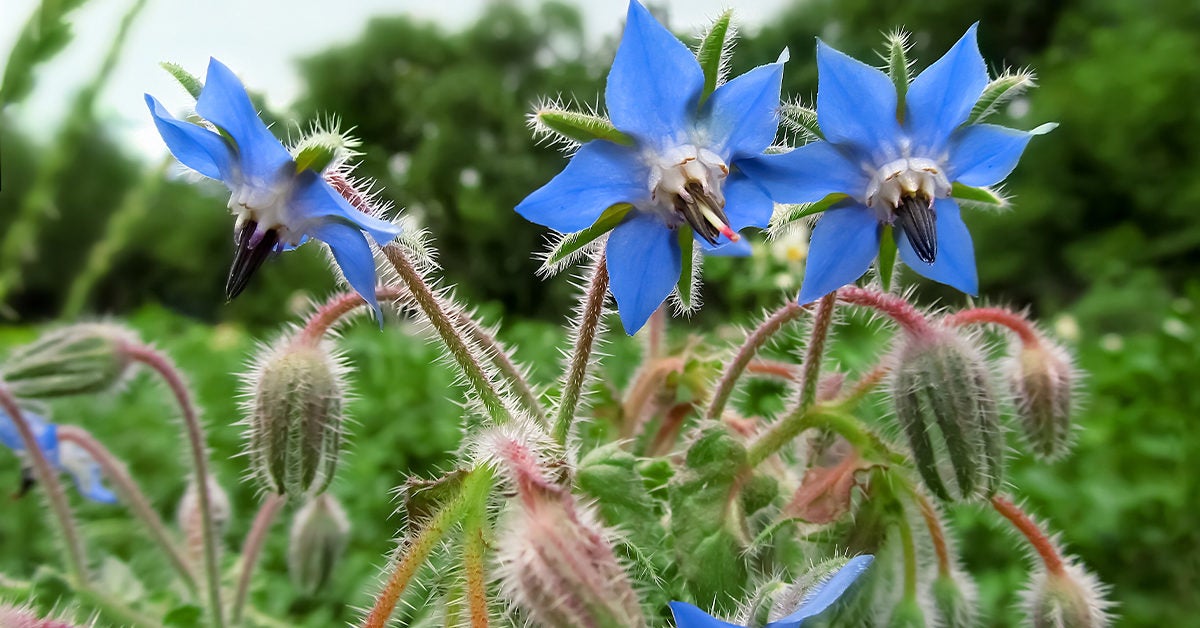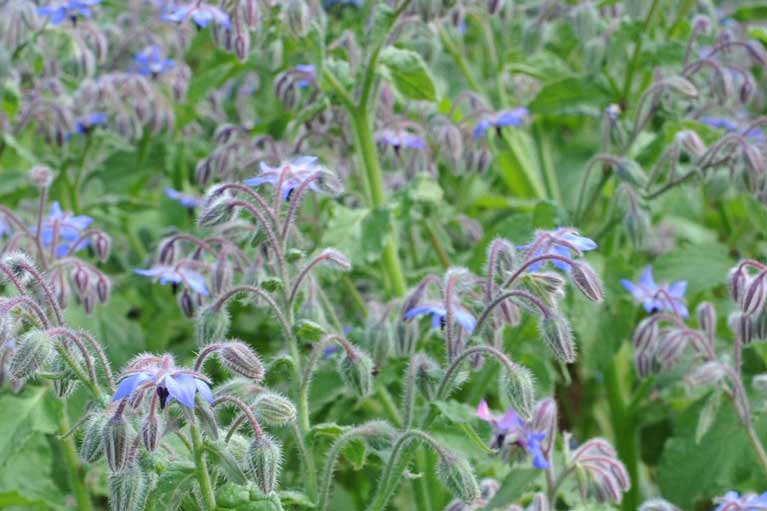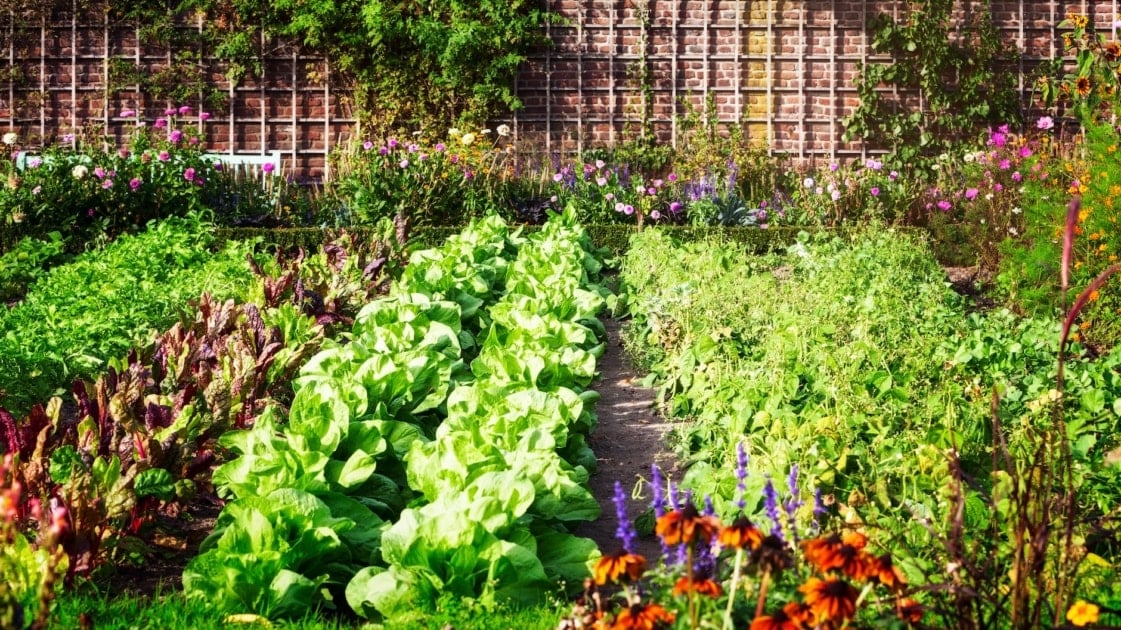Borage Companion Plants: The Ultimate Guide To Growing Stronger Healthier Vegetables
Borage Companion Plants: The Ultimate Guide to Growing Stronger Healthier Vegetables
Borage is a beautiful, hardy herb that is easy to grow and can add a splash of color to any garden. It is also a valuable companion plant for other vegetables, as it can help to repel pests, attract beneficial insects, and improve soil health.
In this blog post, we will discuss the best companion plants for borage, as well as some of the benefits that these plants can offer. We will also provide some tips on how to plant and care for borage, so that you can enjoy all of its benefits.
Benefits of Borage Companion Plants
There are many benefits to planting borage companion plants. Some of the most common benefits include:
- Pest control: Borage can help to repel a variety of pests, including aphids, cabbage moths, and cucumber beetles. The flowers of borage produce a nectar that is attractive to parasitic wasps and other beneficial insects that help to control pests.
- Pollination: Borage is a good source of nectar and pollen, which makes it an attractive plant for pollinators such as bees, butterflies, and hummingbirds. These pollinators help to pollinate other plants in your garden, which can lead to increased yields.
- Soil improvement: Borage is a nitrogen-fixing plant, which means that it can help to improve the nitrogen content of the soil. This can benefit other plants in your garden, as nitrogen is an essential nutrient for plant growth.
- Disease resistance: Borage may also help to improve the disease resistance of other plants in your garden. For example, some studies have shown that planting borage near tomatoes can help to reduce the risk of tomato diseases such as late blight.
Best Companion Plants for Borage
Some of the best companion plants for borage include:
- Basil: Basil and borage are both attractive to pollinators, and they can help to improve the flavor of each other's plants.
- Beans: Borage can help to improve the nitrogen content of the soil, which is beneficial for beans. Beans, in turn, can help to suppress weeds around the borage plants.
- Cabbage: Borage can help to repel cabbage moths, which are a common pest of cabbage plants.
- Cucumbers: Borage can help to attract pollinators, which are essential for cucumber pollination.
- Eggplant: Borage can help to repel flea beetles, which are a common pest of eggplant plants.
- Melons: Borage can help to attract pollinators, which are essential for melon pollination.
- Peas: Borage can help to improve the nitrogen content of the soil, which is beneficial for peas. Peas, in turn, can help to suppress weeds around the borage plants.
- Peppers: Borage can help to attract pollinators, which are essential for pepper pollination.
- Pumpkins: Borage can help to attract pollinators, which are essential for pumpkin pollination.
- Radishes: Borage can help to attract beneficial insects that can help to control aphids, which are a common pest of radishes.
- Strawberries: Borage can help to attract pollinators, which are essential for strawberry pollination.
- Squash: Borage can help to attract pollinators, which are essential for squash pollination.
- Tomatoes: Borage may help to improve the flavor of tomatoes and may also help to reduce the risk of tomato diseases.
How to Plant and Care for Borage
Borage is a relatively easy plant to grow. It prefers full sun and well-drained soil. It can be planted from seed or from transplants. If you are planting from seed, sow the seeds directly in the garden about 1/2 inch deep and 12 inches apart. If you are planting from transplants, space the plants 12-18 inches apart.
Borage does not require a lot of fertilizer. A light application of compost or manure in the spring is all that is needed. Water the borage plants regularly, especially during hot, dry weather.
Borage plants will begin to flower in about 6-8 weeks after planting. The flowers can be harvested for fresh eating or dried for later use. The leaves of borage can also be eaten fresh or cooked.
Conclusion
Borage is a versatile and beneficial plant that can add beauty and value to any garden. By planting borage companion plants, you can help to attract pollinators, repel pests, and improve soil health. With a little care, borage plants will thrive and provide you with many years of enjoyment.
FAQ of borage companion plants
Question 1: What are some good companion plants for borage?
Answer: Borage is a versatile plant that can be paired with a variety of other plants. Some of its best companion plants include:
- Cucumbers: Borage helps to attract pollinators, which can help to improve the pollination and yield of cucumbers.
- Tomatoes: Borage helps to deter pests such as tomato hornworms and cabbage worms.
- Squash: Borage helps to improve the growth and flavor of squash.
- Strawberries: Borage helps to deter slugs and snails, which can be a problem for strawberries.

- Herbs: Borage is a good companion plant for many herbs, such as mint, thyme, and rosemary. These herbs can help to repel pests and diseases, and they can also enhance the flavor of borage flowers.

Question 2: How do I plant borage with other plants?
Answer: When planting borage with other plants, it is important to consider the size and growth habits of both plants. Borage can grow quite tall, so it is best to plant it behind shorter plants. It is also important to plant borage in full sun, as it will not thrive in shade.
Here are some tips for planting borage with other plants:
- Plant borage in the back of a flower bed or border, so that it does not shade out shorter plants.
- Plant borage near tomatoes, cucumbers, squash, or strawberries.
- If you are planting borage with herbs, choose herbs that have similar growing requirements.
- Water borage regularly, especially during hot weather.
- Fertilize borage every few weeks with a balanced fertilizer.
Question 3: What are the benefits of companion planting with borage?
Answer: There are many benefits to companion planting with borage. Some of the most notable benefits include:
- Borage attracts pollinators, which can help to improve the pollination and yield of other plants.
- Borage helps to deter pests, such as tomato hornworms and cabbage worms.
- Borage helps to improve the growth and flavor of other plants.
- Borage is a nitrogen-fixing plant, which means that it can help to improve the nitrogen content of the soil.
- Borage is a beautiful and colorful plant that can add interest to any garden.
Question 4: How do I harvest borage?
Answer: Borage flowers can be harvested when they are fully open. The leaves can also be harvested, but they are best used fresh. To harvest borage, simply snip off the flowers or leaves with a pair of scissors.
Question 5: How do I store borage?
Answer: Borage flowers can be stored in the refrigerator for up to a week. The leaves can be stored in the refrigerator for up to a few days. Borage can also be frozen, either whole or chopped.
Image of borage companion plants
- Tomatoes: Borage is a good companion plant for tomatoes because it helps to deter pests such as tomato hornworms and cabbage worms. It also attracts pollinators, which can help to improve the tomato plant's fruit production.

- Cucumbers: Borage is another good companion plant for cucumbers. It helps to attract pollinators and can also help to repel cucumber beetles.
- Strawberries: Borage is a good companion plant for strawberries because it helps to attract pollinators and can also help to repel slugs and snails.

- Squash: Borage is a good companion plant for squash because it helps to attract pollinators and can also help to repel squash bugs.

- Carrots: Borage is a good companion plant for carrots because it helps to attract pollinators and can also help to repel carrot flies.


Post a Comment for "Borage Companion Plants: The Ultimate Guide To Growing Stronger Healthier Vegetables"